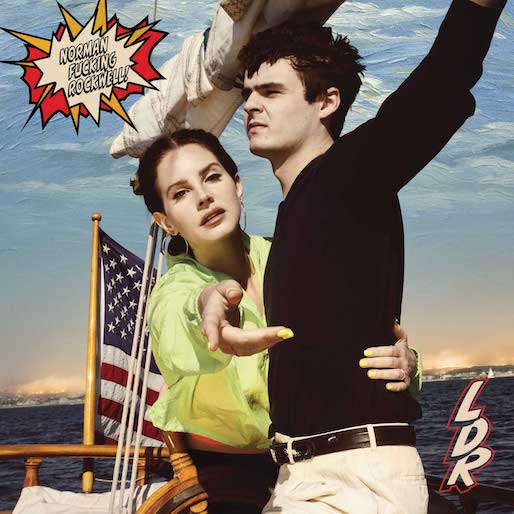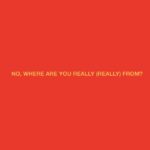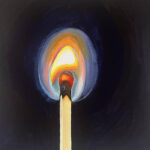Review: Lana Del Rey – Norman Fucking Rockwell
Posted: by admin

Although it’s debatable whether or not pure objectivity can exist, Norman Rockwell at least came close. He characterized the United States for what it truly was in his paintings, from the diligence women possessed during World War II (Rosie the Riveter) to the onslaught of racism Ruby Bridges faced for desegregating a school during the civil rights movement (The Problem We All Live With). It’s fitting that Lana Del Rey named her record after him, and even more fitting that she used an expletive as a centerpiece (has she ever been prim and proper?). Rockwell and Del Rey alike lie in the gray area of patriotism. To them, the United States has merit, but it’s a far cry from a utopia. While Rockwell cherished the United States, a harrowing depiction of segregation doesn’t seem intended to incite pride. Del Rey is fiercely patriotic and fiercely liberal, a pairing that some may find incongruous in the midst of Trump’s presidency. In much of her work, she idealizes the US as a haven brimming with liberty and thrill. Still, weeks before Norman Fucking Rockwell was released, she drafted an impromptu track condemning the nation’s complacency in mitigating gun-related violence.
Steadily paced, anchored piano pieces provide the backing of a sizable portion of the record, which Del Rey paces herself with by singing concisely. It’s very vanilla – not lackluster, but rather, refined and digestible. Her voice is freckled with invigorating vocal inflections. She adds a couplet of additional syllables to the word “bartender” on the track bearing that name. Her voice turns wispy shortly before “Hope is a Dangerous Thing for a Woman Like Me to Have – But I Have It” culminates. And there are some bite-sized ascensions on “Happiness is a Butterfly.”
Thematically, this record is underscored by depression. The title track is a takedown of men who have upset her by failing to exhibit compassion. She’s experienced a sparse amount of nurturing (“If you hold me without hurting me / You’ll be the first who ever did”), but seems acclimated to the turmoil (“what’s the worst that can happen to a girl who’s already hurt?”) Del Rey likened happiness to a butterfly because, like the insect’s tendency to seldom cement itself in one place, the glee she feels only exists in spasms. Depression can also be rooted in something less pinpointed, something expansive and out of one’s control. That’s what she wails about in “The Greatest,” the record’s most hopeless track. Del Rey is not only homesick for her east coast upbringing, but for the past as a whole. She longs for the free-spirited aura that she took for granted before becoming a celebrity, sighing “I guess that I’m burned out after all.” She wishes for an administration that would be more vigilant about about the looming threat of climate change.
It’s easy to write Del Rey off as a crybaby. And perhaps, she is. But to be sad is to feel, and to feel is to care. She’s far less prolific than Rockwell, but they both create art that mirrors reality – even if it means being a damper.
Disappointing / Average / Good /
_
Bineet Kaur // @HelloBineet
The Alternative is ad-free and 100% supported by our readers. If you’d like to help us produce more content and promote more great new music, please consider donating to our Patreon page, which also allows you to receive sweet perks like free albums and The Alternative merch.










